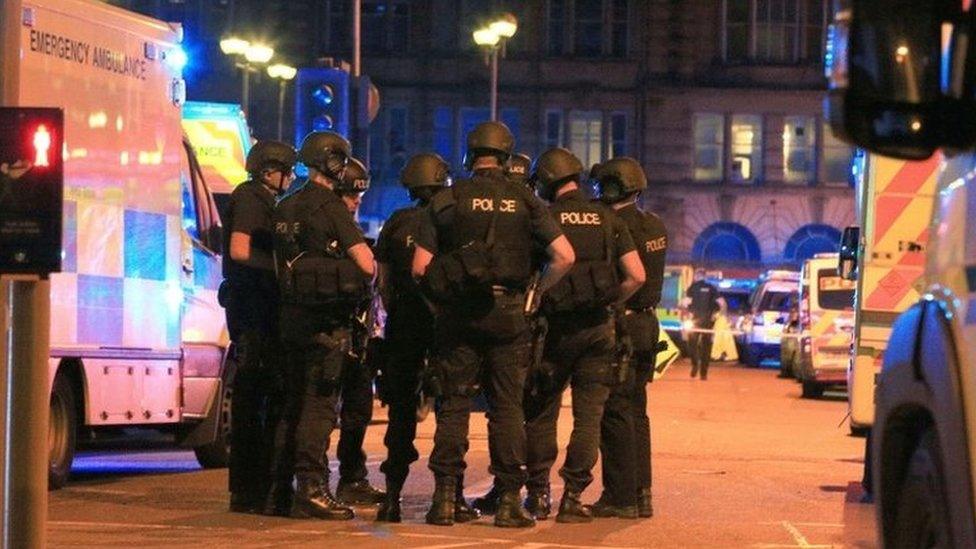Emergency crews carry out terror attack response drills
- Published
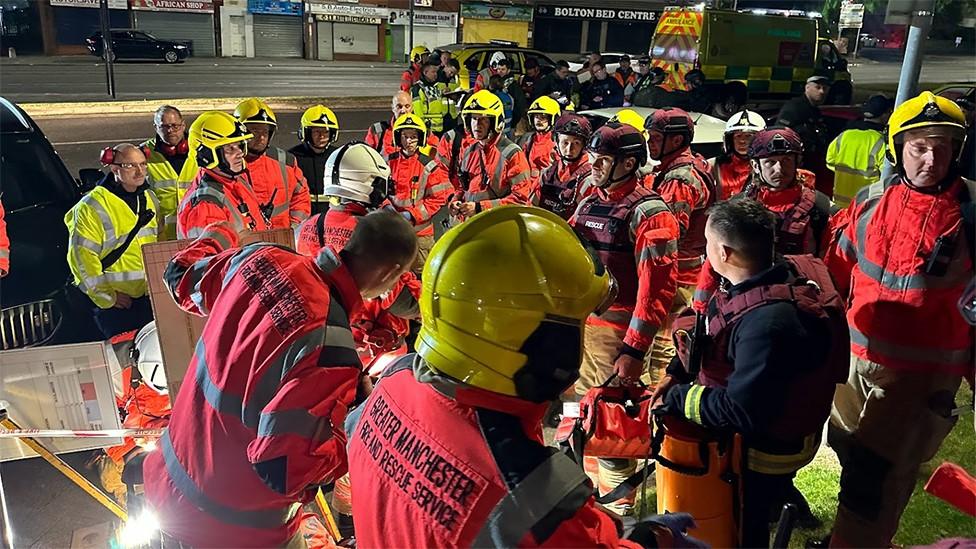
Supt John-Paul Ruffle said the exercises were a vital opportunity to test responses by blue light partners
Emergency services have taken part in joint training exercises to test its response to a terror attack or mass-casualty incidents.
It comes after a public inquiry found a catalogue of failings by the emergency response to the aftermath of the Manchester Arena bombing.
Greater Manchester's fire, police and ambulance services took part in mock events over the last month.
The ambulance service said it meant they were "better prepared".
Twenty-two people died and hundreds more were injured when Salman Abedi detonated a device at the end of an Ariana Grande concert at the arena on 22 May 2017.

Twenty-two people died in the bombing
The multi-agency exercises have seen the emergency services test their responses to mock real-life scenarios at the University of Bolton.
They were based on terrorists indiscriminately attacking people at the venue with up to 60 volunteers acting as casualties with a wide range of injuries created by the university's special effects students.
The training included the use of the Joint Emergency Service Interoperability Principles (JESIP) and declaration of a major incident, known as Operation Plato, following learning from the Manchester Arena Inquiry, the Greater Manchester Combined Authority said.
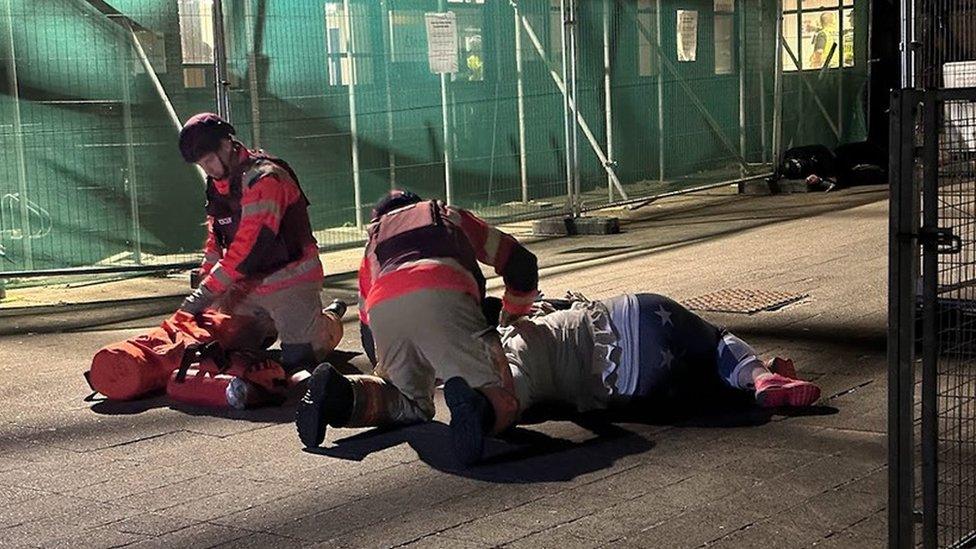
Special effects students created a variety of injuries on volunteers acting as casualties
Supt John-Paul Ruffle, of Greater Manchester Police (GMP), said the exercises were a "vital opportunity to test the response in an environment where there is no real risk or threat of harm and to identify and implement any learnings".
Ben Levy, of the fire service, said such cross-service training exercises were "absolutely crucial in making sure we remain as prepared as possible" for future incidents.
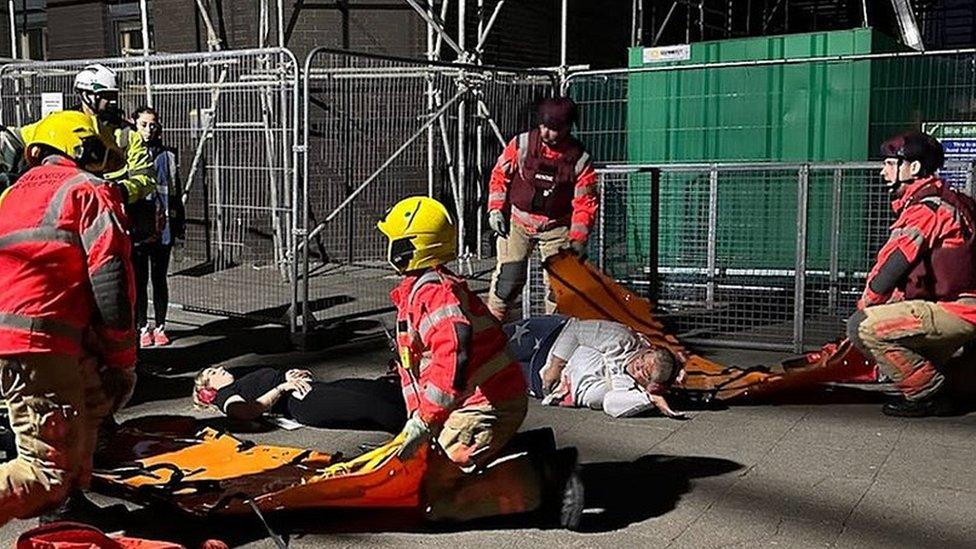
Up to 60 volunteers acted as casualties for the training exercises
Dan Smith, of the North West Ambulance Service, added: "These exercises give our teams valuable experience working in extreme situations alongside our blue light partners.
"We are very pleased with the outcome.
"This means should the worst happen; we are better prepared to respond and care for whoever needs us."
In June GMP's Deputy Chief Constable Terry Woods told a hearing about recommendations made by the public inquiry the force would be "far better prepared" for a terror attack thanks to a structure put in place by the force following the bomb.

Why not follow BBC North West on Facebook, external, Twitter, external and Instagram, external? You can also send story ideas to northwest.newsonline@bbc.co.uk
- Published5 June 2023

- Published3 November 2022
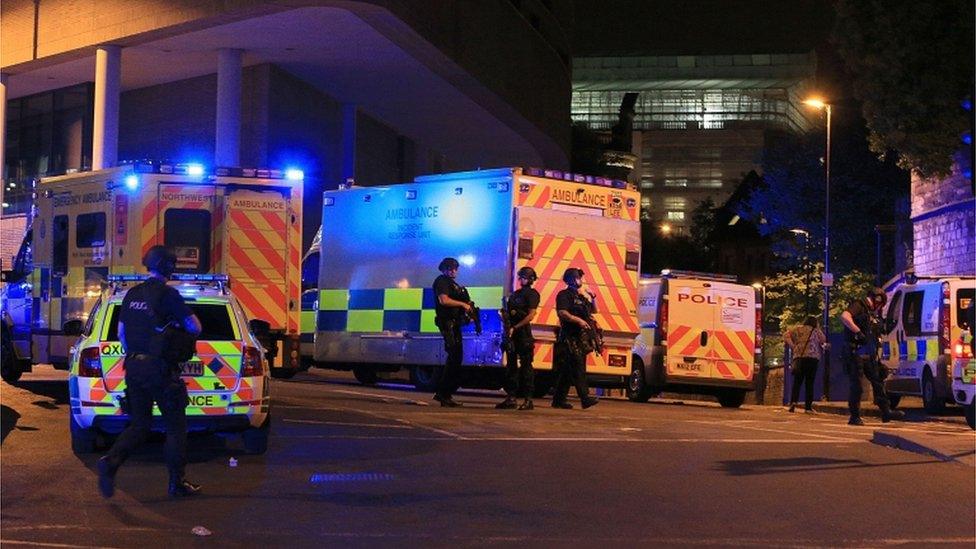
- Published3 November 2022

- Published9 February 2021
